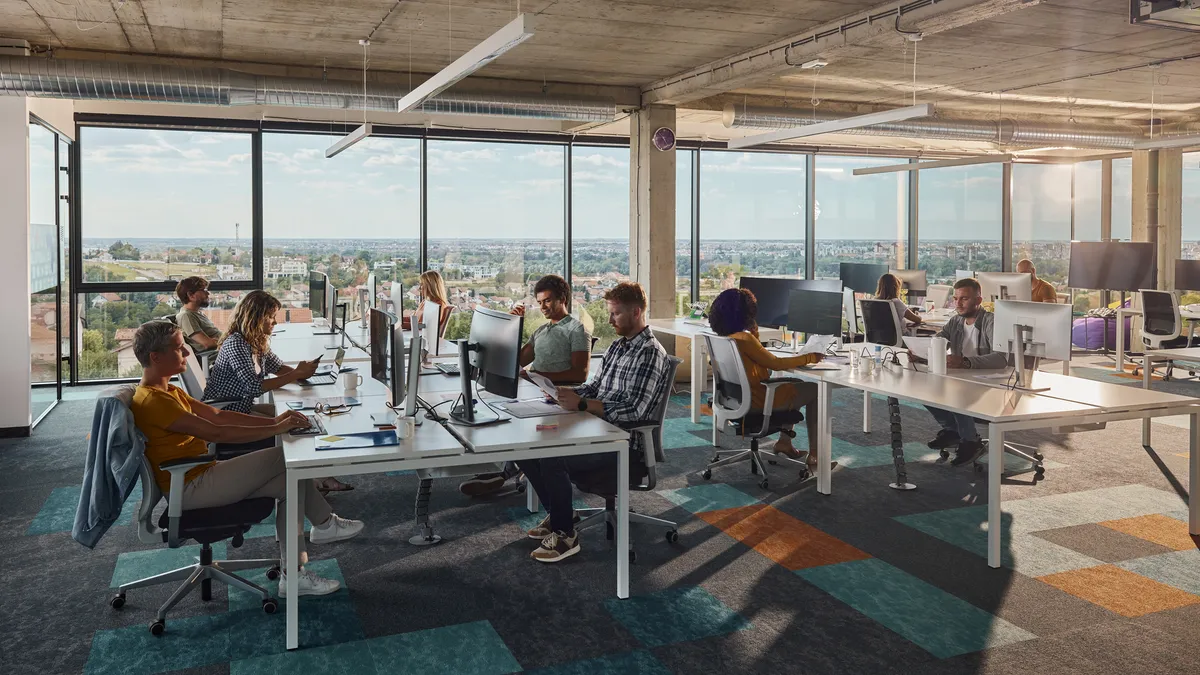In today’s workplace, physical workspaces play a role in a company’s culture and success, according to a Jan. 24 report from CIC, a builder and operator of innovation ecosystems, and Harvard Business Review Analytic Services — but the shape of that office is still changing.
In a survey of more than 560 members of the HBR audience who are involved in their organization’s workspace decisions, respondents noted changes their company is making or has made in the past three years, such as adding more satellite locations outside of headquarters (22%), leasing an office or floor in a flexible workspace or co-working space (18%), shifting from long-term to short-term options (16%) or renting out office space to other businesses (16%).
Companies are also prioritizing connection and collaboration, according to the report. Respondents said their companies are making facility changes such as adding enhanced digital conference areas to connect remote and in-office workers (76%), adding more unassigned desks (62%) and adding more meeting spaces or collaborative workspaces (59%).
Among those who are involved in their organization’s workspace decisions, 86% agreed that having the option to come to a physical office is beneficial for employees.
“Over the past few years, it has become clear that the dynamics of a workspace wield a profound impact on every facet of an organization,” Tim Rowe, founder and CEO of CIC, said in a statement.
“These new findings underscore that companies are increasingly realizing the bottom line benefits that flexible office and lab space provide, and they’re evolving to prioritize not just cost but the critical value of community and culture,” he said.
When asked about reasons for reassessing the workplace, respondents said they want to improve company culture or engagement (42%), encourage employees to meet or work in person (34%) and be a more attractive employer (24%).
Employers are thinking about community, connection and proximity as well, according to the report. Respondents said their company is adding more mentoring and professional growth opportunities (53%), team bonding outings (52%) and in-person events to connect with a wider business community (77%).
Organizations plan to cut or optimize their workspace this year to accommodate hybrid work, according to a CBRE report. Office utilization rates have declined since 2020 and continue to remain below pre-pandemic levels, prompting companies to use different metrics to evaluate space decisions.
At the same time, uncertainty continues for workspace companies such as WeWork, which filed for bankruptcy while it rebuilds. As return-to-office policies shift, flexibility remains a major priority.
Some type of hybrid model will prevail, according to an EY report. Most companies have shifted away from fully remote work, with smaller companies increasing office space and larger companies decreasing space but enhancing quality, technology and amenities.











